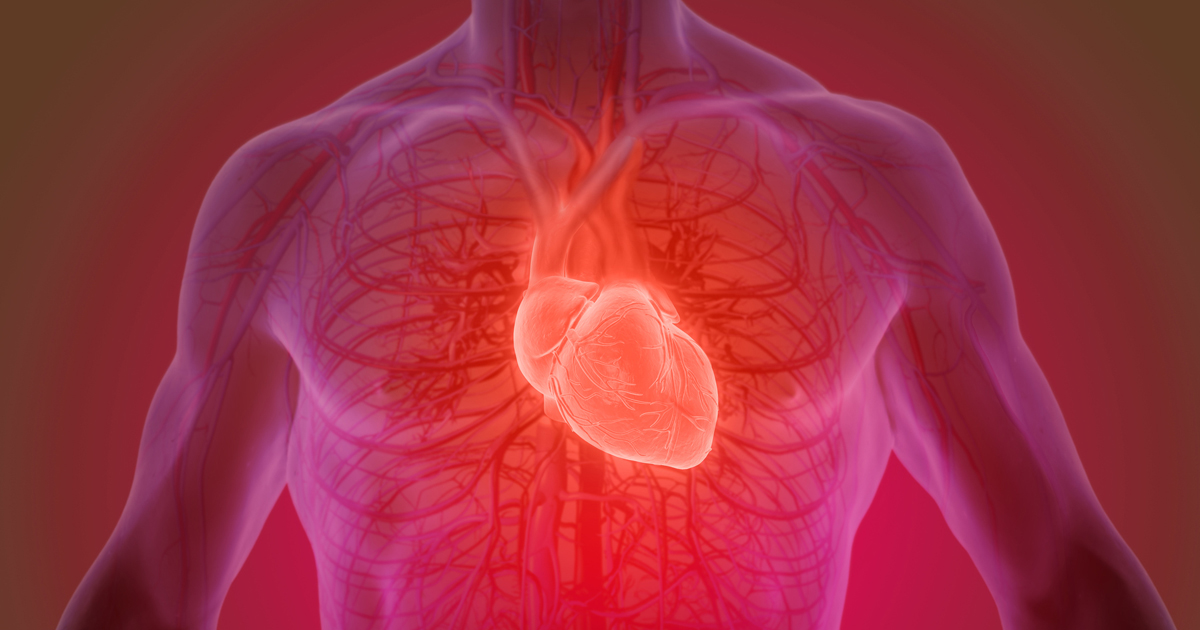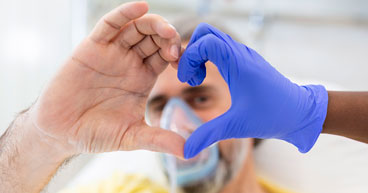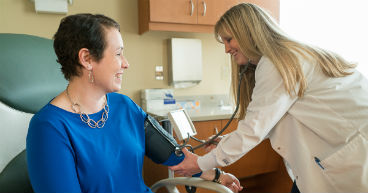
In sonnets and songs, spurned lovers have been pining—and whining—about lost loves and broken hearts forever. But, at the risk of sounding cold, these ballads speak only figuratively of heartache. The reality is that failed romance cannot literally cause a broken heart.
What may seriously damage the heart is disease, especially cancer and cardiovascular disease—the two most common causes of death in the United States. Research clearly indicates that the relationship between the two diseases often appears to be causal, not just casual.
The direct connection of heart disease to cancer is the subject of much current research since the cause and effect is not fully understood. The correlation between cancer to heart disease is well documented, however. In a 2023 article in the American Heart Association journal Circulation, cancer is described as a cardiovascular risk factor. The article also said an “analysis showed that a history of cancer was an independent and significant predictor of MACE (major cardiovascular events).”
Many of the treatments doctors use to fight cancer may do their job well, but at the same time, may cause serious damage to the heart—often many years into survivorship. In fact, the rising number of people living longer with cancer may be contributing to the rise in heart disease among patients who may have otherwise died before cardiovascular issues arose in decades past.
A record 20 million cancer survivors are now living in the United States. And while they’ve survived cancer, these patients may experience cardiovascular issues later in life because of damage likely caused by their cancer treatments.
In an effort to mitigate the danger to the heart, oncologists are increasingly working with cardiologists and primary care physicians to prevent and manage cardiac complications that may result from cancer treatments.
In this article, we’ll explore:
- Can cancer cause heart problems?
- How do cancer treatments affect cardiovascular risk?
- Can chemotherapy cause heart problems?
- Can heart disease lead to cancer?
- What is cardio-oncology?
If you’ve been diagnosed with cancer and are interested in a second opinion on your diagnosis and treatment plan, call us or chat online with a member of our team.
Can cancer cause heart problems?
Heart tumors are extremely rare and nearly 90 percent of tumors found in the heart are benign. The most common type of heart cancer— cardiac sarcoma—accounts for about .03 percent of all cancer diagnoses. Still those sarcomas may be aggressive and develop with few symptoms, making them difficult to treat.
The rarity of primary heart tumors may be attributed to two main factors:
Heart cells tend to grow and divide very slowly. This tendency makes heart cells less susceptible than other cells in the body to replication errors that may lead to tumors.
The heart is well insulated. The organ is protected from external cancer-causing agents, such as ultraviolet (UV) light or airborne carcinogens, behind bone, muscle and cartilage.
Tumors found in the heart may also be from cancer that has metastasized from elsewhere in the body. These also are rare.
How do cancer treatments affect cardiovascular risk?
In most cases, heart issues that develop after a cancer diagnosis are caused by cancer treatments. This is referred to as cancer treatment-related cardiotoxicity, damage from therapies to the heart’s valves and vessels that impact heartbeat and the ability to adequately pump blood.
For example, one potential reason behind an increase in heart risk from cancer treatment is the wave of targeted therapy drugs recently approved by the U.S. Food and Drug Administration.
“These drugs are helping us make strides in the fight against cancer,” says Anthony Perre, MD, New Patient Intake Physician at City of Hope® Cancer Center Atlanta.
“But many of them, like trastuzumab (Herceptin®)—commonly used to treat breast cancer—may affect the heart by reducing its pumping ability, which could lead to congestive heart failure.”
Radiation therapy also has been linked to an increased risk of heart attacks, heart failure and arrhythmias.
Scientists are researching rare cases of myocarditis that may a rare side effect of immune checkpoint inhibitors.
Can chemotherapy cause heart problems?
The side effects of chemotherapy are well known. Patients treated with chemotherapy drugs commonly experience hair loss, digestive issues and/or immune suppression.
Heart issues also are a common side effect of chemotherapy, especially those in the drug class anthracycline, which are used to treat a wide variety of common cancers, including breast, lung, bladder and several blood cancers. Doxorubicin is in the anthracycline class and is nicknamed “red-devil chemo” because of its difficult side effects, including potential heart damage.
These chemotherapy drugs may cause cardiomyopathy, which makes it harder for the heart to pump blood. Symptoms of cardiomyopathy include:
- Shortness of breath
- Fatigue
- Dizziness or fainting
- Swelling in the feet, ankles or legs
- Abnormal heartbeat
Can heart disease lead to cancer?
Just as cancer treatments are known to potentially lead to heart damage, evidence suggests and that people with cardiovascular disease are more likely to be diagnosed with cancer and die from cancer.
While the cause and effect to determine how heart disease may lead to cancer is not completely understood, the two diseases share many common risk factors.
“If you look at just risk factors overall, there's a ton of overlap,” says Stephen Lynch, MD, Vice Chief of Staff at City of Hope Cancer Center Phoenix. “Smoking, for instance, is going to increase your risk for cancer and increase your risk for heart disease. Obesity and lack of exercise are risk factors for both.”
What is cardio-oncology?
Cancer treatments impact on the heart have been known for decades. But only recently have the disciplines of cardiology and oncology connected to form the field of cardio-oncology.
This emerging specialty focuses on assessing and managing heart issues before, during and after cancer treatment and into survivorship.
“The world of cardio-oncology is a booming field of medicine where there's a lot of research going so that we can continue to do better for patients in assessing and protecting their heart over time,” Dr. Lynch says.
Cardio-oncology involves three main areas of focus:
- Identifying high-risk cancer patients
- Preventing damage to the heart that may be caused during treatments
- Monitoring patient progress during and after treatment
Before cancer treatment begins, oncologists consult with a cancer patient’s primary care physician and/or cardiologist to identify chronic conditions, such as hypertension and diabetes, that increase the patient’s risk for cardiovascular issues. The information is then used to guide the patient’s treatment plan and dictate which therapies are prescribed, especially if a patient is going to need to be anesthetized.
“If we identify folks immediately that are going to need some type of cardiovascular evaluation or preoperative assessment, then we have a program in our building to take care of that and we have a dedicated cardiologist on site,” Dr. Lynch says. “So that absolutely plays an important part in developing a treatment plan since many of the therapies an oncologist might utilize are potentially impactful on the heart directly.”
Doctors also work together to recommend prevention-based lifestyle changes, such as diet or exercise regimens designed for weight loss or smoking cessation programs to help patients lower their risk for heart disease. Once cancer treatment begins, the cardio-oncology team monitors how certain therapies may be affecting the patient’s heart and adjust, as necessary.
In the past, doctors used an echocardiogram to measure changes in the heart’s ability to pump blood, since lower rates may be a sign of treatment-related heart damage. Today, technological advances are helping to expand the options available to reduce patients’ risk of cardiac issues, even though the challenge remains difficult, Dr. Perre says.
“Unfortunately, we’re seeing more heart risk from cancer treatments than ever before,” he says. “But we can’t stop the treatments because they’re working well to fight the cancer.”
As a cancer survivor, Dr. Perre knows his cardiovascular risk is higher than the average person’s. To treat his Hodgkin lymphoma, Dr. Perre was given a combination of radiation therapy and doxorubicin.
“I know I’m at a greater danger for heart problems,” he says. “That’s why I have to make sure I take the precautions I can and undergo the proper monitoring. Prevention and vigilance are such important components of cardio-oncology.”
If you’ve been diagnosed with cancer and are interested in a second opinion on your diagnosis and treatment plan, call us or chat online with a member of our team.



